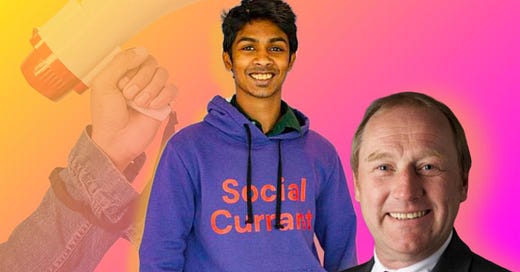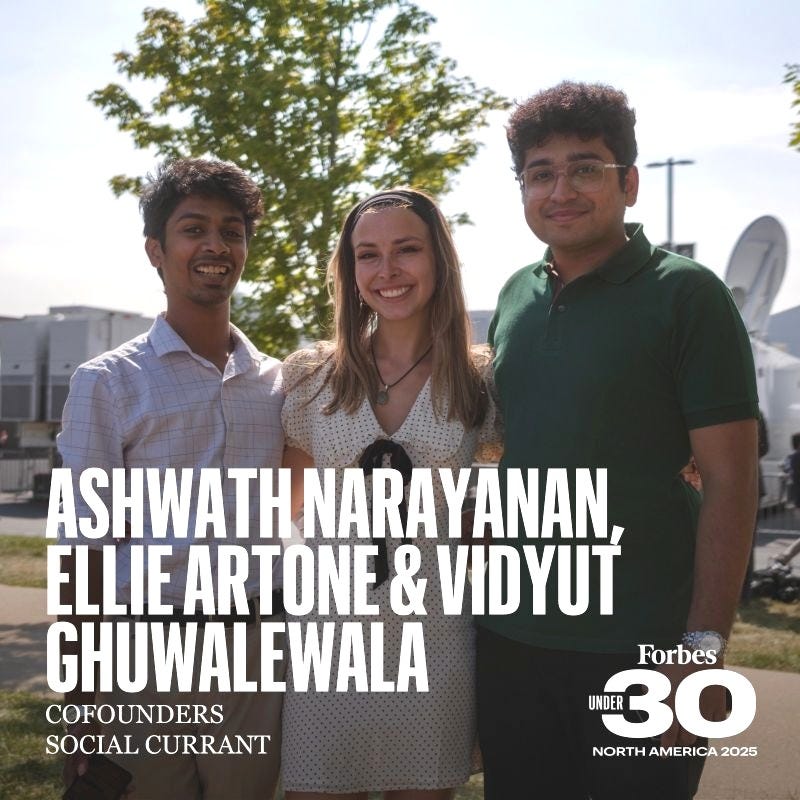Part 6 — What are the digital trends for politics and diplomacy?
This is the best time of the year to talk about 2025 trends in digital and social media and predictions on what's to come.
💬 Quick CONVERSATION STARTERS:
“The social media landscape is now more fractured, and audiences are more elusive”
“Creators […] can also play a role in spreading harmful information or false information”
Thank you!
Here we are with Part 6 of our new series on digital trends, just a bit over 2 months after the launch of
on Substack. We’re still learning a lot about what to write here, how to write it, what to focus on, how to interact and engage with our 2,000+ subscribers. We’re slowly growing and, so far, we love it here!For this Part 6, it’s great to hear from
, a social media and digital diplomacy innovator, and Ashwath Narayanan, a creator’s whisperer and creator economy founder. We love their insights on what’s to come and their predictions for 2025.Don’t miss Part 1 and Part 2 and Part 3 and Part 4 and Part 5, with insights from Aleksandra Kuzmanovic at the World Health Organization (WHO), Bhumika Regmi at Malala Fund, Aubrey Ottenstein at Hilltop, Valentina Tonutti of
, Dan Morrison, Patricia Gruver-Barr, Dante Licona, Erika Marzano at DW, Marco Ricorda, Stéphanie Fillion, Roxy Ndebumadu, Gerry Diaz Bartolome, Anja Gabriel, and Alessandro Tommasi.More to come soon!
Also, stay tuned for the next batch in our creators impact series on TikTok and Instagram.
We cannot thank enough the creators and experts who already took part in it with insights, comments, predictions, and more, including
, , , Allie O’Brien, Enrique Anarte, , and Lindsey Gamble.Today’s quote:
Choose LinkedIn if you want visibility, networking, and inbound opportunities. It’s the best place to establish yourself as a thought leader and build credibility.
Choose Substack if you want to grow a loyal audience, foster deep engagement, and monetize your writing directly.
—
”LinkedIn vs. Substack: What I Learned from Building on Both”
Matthias Lüfkens: “The social media landscape is now more fractured, and audiences are more elusive”
* Matthias Lüfkens is leading the social media team at Interpol, the International Criminal Police Organization in Lyon, France. Previously he was a social media architect at DigiTips, a boutique PR agency advising a range of corporations, governments, UN agencies and non-profit organisations on the best use of social media. Matthias is best known for having created Twiplomacy, a study which looks at how governments and international organizations use digital platforms. He was Head of Digital Media at the World Economic Forum (WEF) where he designed and implemented the highly successful digital strategy, opening the Davos meeting to a global audience on social media. In his spare time, he manages the Instagram account of @LeJetdeau, Geneva’s iconic water fountain.
1) You've been studying the social media activity of world leaders for many years now. What are your top takeaways from those presidents and prime ministers who are successful at it?
The most followed leaders are not necessarily the most interesting. I prefer leaders who know how to engage personally with their followers. Leaders who are not shy to answer questions and who understand social media as a conversation.
2) What are some of the biggest mistakes you've seen in digital diplomacy?
Probably the biggest mistake is not to be present and active on any social media platform. Another big mistake is to use social media purely as another broadcasting channel. And finally, a fatal error is not to be reactive, not embracing change and not exploring new platforms.
3) What are your predictions for digital diplomacy and social media next year and beyond?
I don’t like to make any predictions, but one thing is clear: the social media landscape is now more fractured, and audiences are more elusive. Organisations and leaders will have to invest more resources to engage their audiences on these different platforms. The key is to entertain your followers. Obviously videos are key, but text-based social media is very much alive.
Ashwath Narayanan: “Creators can not only be the ones who spread news or accurate information, but in some cases can also play a role in spreading harmful information or false information”
* Ashwath Narayanan is Chief Executive Officer at Social Currant, a creative agency that is helping nonprofits and issue organizations use social media to reach audiences more effectively. Ashwath, who was only 22 when he launched his firm, and his team work side-by-side with TikTok and Instagram influencers and creators to encourage young people to drive social movements and inspire political campaigns.
1) What is the role of creators and influencers in politics and diplomacy?
Creators are increasingly playing an important role in politics, diplomacy and the news. According to PEW - 1 in 5 Americans say they get their news regularly from influencers on social media. This statistic underscores the importance of content creators and influencers in the news ecosystem. Creators can not only be the ones who spread news or accurate information, but in some cases can also play a role in spreading harmful information or false information.
2) What is your take on the role of creators v journalists?
We’re increasingly seeing the roles of creators and journalists merging, and in many respects, you can argue that a lot of journalists are content creators with their regular videos and content around the stories they write or report on. That being said, I think both have a collaborative role to play with each other. Creators can be critical allies in distributing stories and the news that journalists report on as well as pushing journalists to cover certain topics. In addition, many journalists become creators
3) Any advice for creators interested in politics and diplomacy?
Do what makes sense to you. Often, there can be a lot of pressure from audiences and stakeholders to comment or everything FAST – it’s important that you consider what your audiences cares about, your lived experiences and expertise and the information you have before commenting on things or spreading information.







